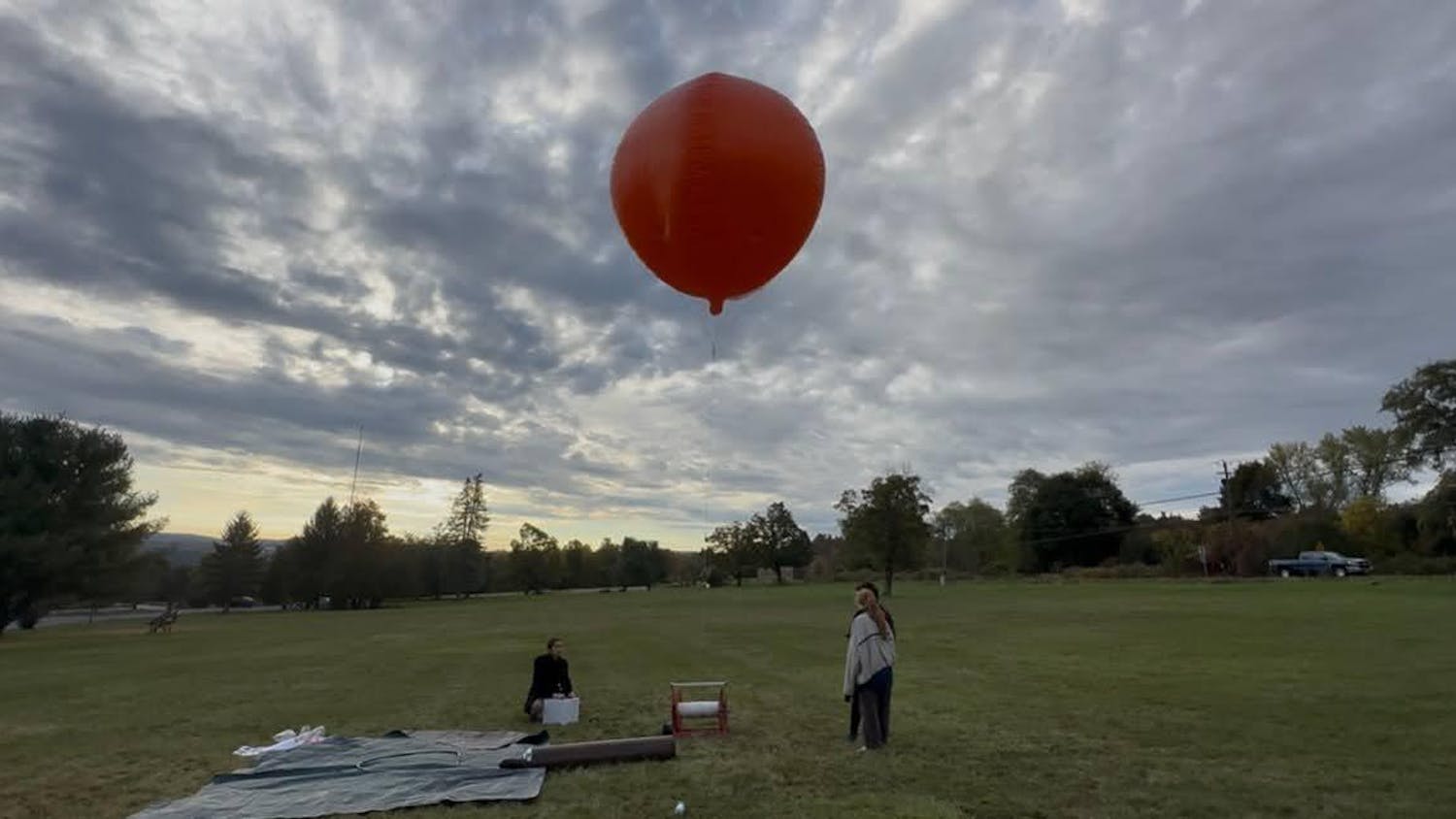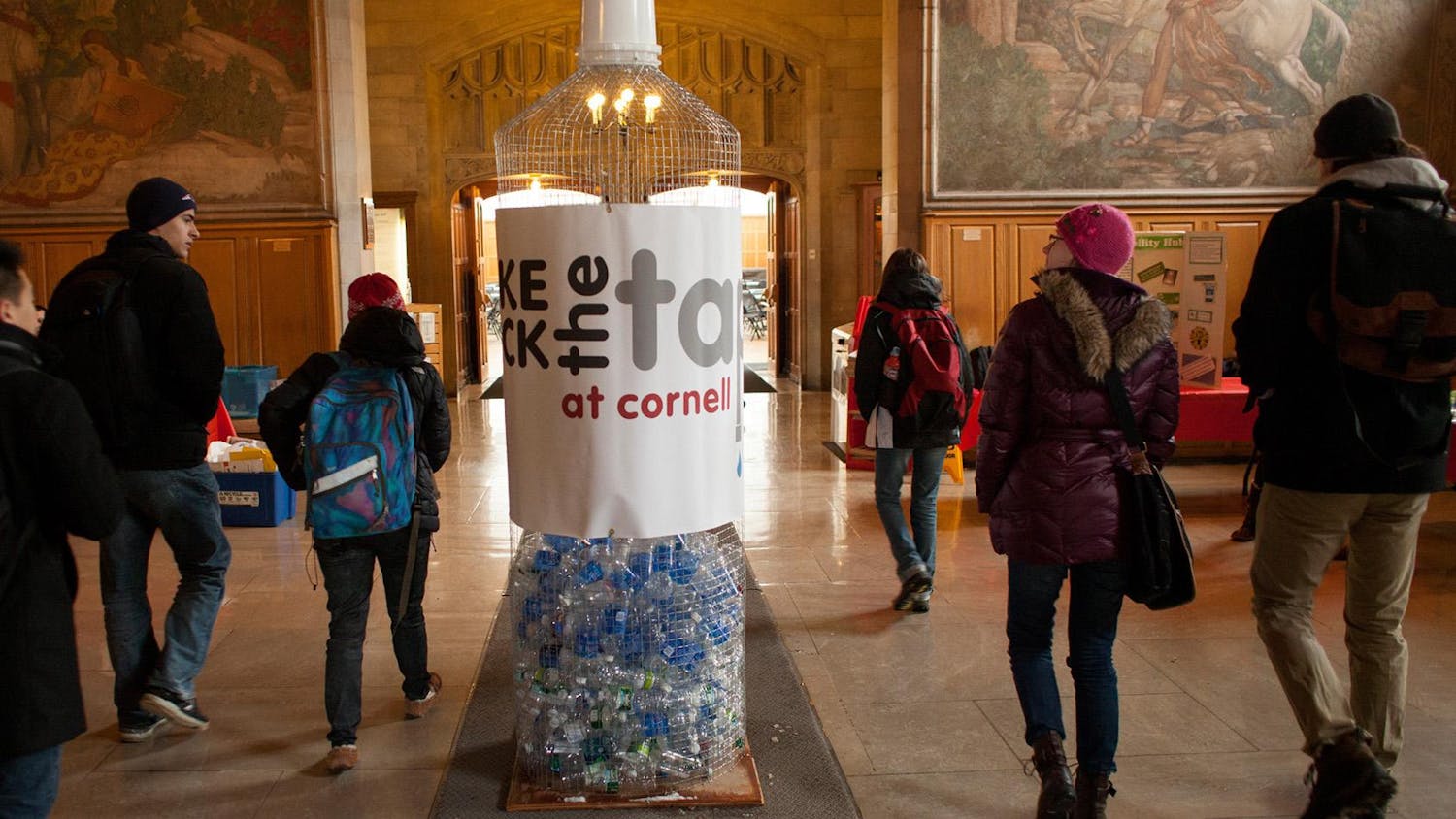Emotionally stirred and shocked, students, staff and faculty responded with individual reactions and stories that tied them to one another and to family and friends across the world.
While some applauded the University for reacting quickly and setting up TVs across campus, others were surprised that classes were continuing to be held.
"It's makes you wonder what has to happen in order for classes to be canceled?" said Solange Rodriguez '04, who is from Manhattan.
Doug Perry, Cornell Law '88, was back on campus yesterday conducting interviews for a Washington law firm.
"It's kind of surreal when you are interviewing students," Perry said. "They were affected, but they were very professional. It's also frustrating when you don't know who the enemy is. This will have a long term impact on us and Cornellians who will be the leaders of tomorrow -- this is the world you're going to be living in."
Students noted the iconic value of the buildings attacked.
"As Americans, I think we have a false sense of security," said Maren Nyer '03. "It makes you really see how fragile human life is and, on the grander scheme, the human condition."
Locally, the University put forth great efforts to make resources available to students.
"There were TVs in Willard Straight Hall and a pull down screen in Baker to let people know what was going on," said Gerren Faustini '04. "I don't think a lot of people were shaken up until later when it hit them -- they're weren't really fazed by it until later in the day."
"It didn't feel real to me until noon when I was in Trillium and I saw that students were crowding around a radio there," said Karin Chang '02.
Although many students tried desperately to get in touch with friends and family in New York City, phone service was limited at best.
"It's been really hard to get in touch with my family," Rodriguez said. "It's scary not being able to doing anything and just watching this."
Dorm residents also quickly received messages from campus officials and individual Resident Advisors during the course of the day.
"Overall the atmosphere has been pretty calm -- there was a quick turnaround to the day's events and there are a lot of resources available to students who may have been directly or indirectly affected," said Adrienne Cole, Residence Hall Director in Cascadilla Hall. "The staff has been getting involved in discussions in the lounge and by checking in with residents door to door."
Dan Lewis '03, who served in the army for five years, said that in the event of a war, the United Stated would first turn to its reserve and National Guard units.
"Any fear as the draft goes, that's an invalid fear -- to institute that would be a traumatic and dire measure," he said. "Terrorism is becoming the new face of war. Very responsible people with the department of the army are treating this like prepping for war and it's an appropriate measure -- this is an attack on a sovereign nation."
With much conjecture about who is to be held responsible, student groups also voiced their opinions.
"People are looking to place blame," said Tareq Arqne, a grad student and member of the Arab Club. "This was a radical and violent act that is not representative of any group or people. You hear of people who are celebrating, but no one is justified in celebration, I don't think anyone can be happy."
In a statement to The Sun, the Arab Club and the Muslim Educational and Cultural Association of Cornell University (MECCA) wrote: "We condemn in the strongest terms possible the vicious and cowardly acts of terrorism against innocent civilians. We join with all Americans in calling for the swift apprehension and punishment of the perpetrators. ... Contrary to common stereotypes, Islam demands tolerance, kindness, and respect of all people. We further call on all people, especially media professionals, to exercise restraint and not draw premature conclusions as to who was responsible for the attacks."
"I think that it is a terrible tragedy and I think it's very easy to point fingers and we all want to find out who did this, but it may be some time before we know," said Prof. Kim Haines-Eitzen, Near Eastern Studies. "We need to be patient in the process and not jump to conclusions about who's responsible."
While some students were not directly affected, they felt the day's events weighed heavy on everyone's mind.
"I was blessed not to have any personal connection," said Haitham Khouri '02. "But like many other students, I know a friend of a friend or a father of a friend who was directly affected.
Cornellians React to Trade Center Tragedy
Reading time: about 5 minutes
Read More










